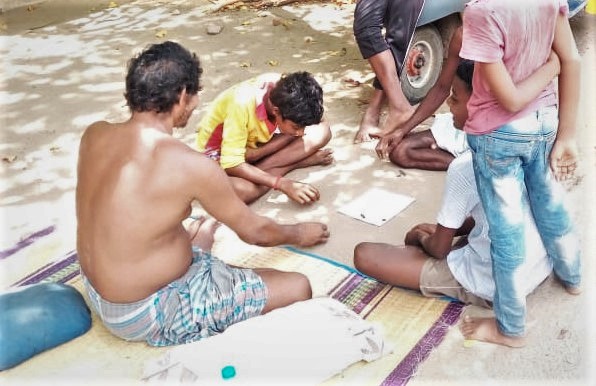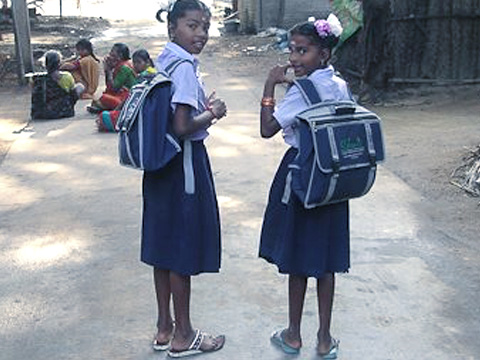-penned by Mrs. Alo Pal, board member.
Vijay and Bharathi fell in love and got married. He could not bring her to his home as theirs was an inter-caste marriage. Vijay has been living with his wife and in-laws since.

Today he is 39, his wife 35, they have two girls and they had taken a space on rent to open an ironing shop with the help of a business loan under Sharana’s Social Entrepreneurship Programme. Their children were enrolled in schools the older one in a Govt Aided school. Come lockdown last year their business came to a complete halt. They received a one-month rent relaxation for their shop after which Vijay was forced to sell his bike to retain the shop and contribute to the family. His older daughter was moved from the Govt. Aided to a Govt School. After an initial failed attempt at stitching and selling masks, Vijay went door to door on his wife’s cycle collecting and returning clothes for ironing. Income was reduced but at least it was something. Vijay could not avail of his share of the government food rations as his name is still attached with that of his family’s, the family who would have none of him even to this day.
On the face of it, while sad, this is not an exceptional story. There is hardly a family among our beneficiaries who haven’t faced this struggle. But we present this case to you to talk about our men. Much ink has spilled and many a paper presented on the added burdens women took on during the pandemic, very little has been written with empathy about the burden of being the man of the house in these exceptionally trying times. We have gone to the extent of putting a value, a figure, to the cost of being a housewife, but we haven’t paused at all and evaluated the pressures on the man, even a skilled man, who loses his lively hood overnight when all activities are halted. We’ve celebrated stories of women who took to cooking snacks and traditional sweets and make dosa batter packets and became productive from the skills acquired at home but we have not given our men the space to voice their despair and sense of utter helplessness when every avenue of work outside the house was closed.
Vijay, felt the burden of being an unproductive man very sharply when even his wife and in-laws started to complain about him living off her family. Very often Vijay starved and let his children have the food instead. He heard there was an opening for a sweeper in a hospital, but the hospital wanted only women. Not all men are drunken exploitative husbands. But all men live under the gaze of a society expecting them to “be a man”. Men have minds too and their mental health must be a cause for concern too. In a pandemic, we don’t think twice when we learn “the husband found a job in another city, he eats in a mess and sends money back home” as that is normal. Men can cope with separation. Men can be away while their children grow in the care of their mothers. But perhaps it is time to consider that this income comes at what human cost. We may not be able to change the circumstances, but we may at least pause a while and think of the men, husbands, and fathers away from home, working in difficult circumstances to feed a family. At Sharana while we never lose focus on our women and firmly believe they are the most powerful agents of change and in dire need of empowerment, we thought it was only natural to recalibrate our gaze at the men in the families. This story is one example towards that effort.
-names changed to maintain the privacy of the individuals












